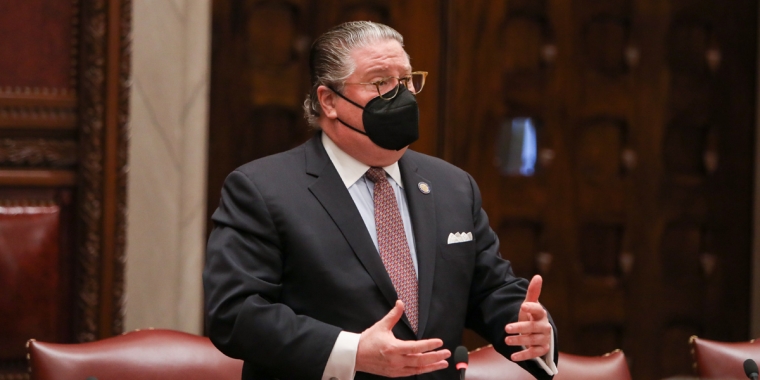
Harckham and Senate Colleagues Advance Legislation Helping Businesses and Employees Recover from Pandemic
January 25, 2022
-
ISSUE:
- Senator Harckham. SD40
- Businesses. Pandemic
- Coronavirus Pandemic; COVID-19; Small Businesses; Unemployment
- Unemployment Insurance

Albany, NY – New York State Senator Pete Harckham and his colleagues in the State Senate approved legislation today that will freeze increases in unemployment insurance taxes for businesses statewide across New York State for 2022 and 2023, as well as increase the maximum unemployment benefit for workers who have lost their jobs at no fault of their own.
“There is still a strong need to provide real help to business owners and their employees statewide because of the Covid-19 pandemic, and this legislation, which I have co-sponsored, offers immediate financial help,” said Harckham. “By lowering the unemployment tax levy on employers while increasing unemployment benefits, we will help people pay their bills and also boost the economy in our communities.”
During the pandemic, unemployment claims have drastically increased as businesses struggled to keep their doors open. This legislation continues the work of the State Senate to relieve the tax burden for businesses across New York State by saving thousands of dollars for employers who are still struggling to recover economically while restoring the planned increase in unemployment benefits.
The newly-approved legislation (S.6791A) was introduced by Sen. Anna Kaplan, chair of the Senate Committee on Commerce, Economic Development and Small Business. It adjusts the unemployment insurance tax rate schedule for the 2022 and 2023 fiscal years to reduce an employer’s tax obligation; and it increases the weekly maximum unemployment benefit for workers in 2022 and 2023.
More specifically, for the 2022 fiscal year, the statutory employer contribution rate would be determined by size of index column headed at 2.5 percent but less than 3 percent and the employer’s respective negative or positive account percentage; and for the 2023 fiscal year, the statutory employer contribution rate would be determined by size of the index column headed at 2 percent but less than 2.5 percent and the employer’s respective negative or positive account percentage.
Meanwhile, the weekly maximum unemployment benefit rises to 40% of the average weekly wage after enactment and to 42% of the average weekly wage in October 2022.
According to the New York State Comptroller’s office, 78% of small businesses (with less than 500 employees) surveyed reported an overall negative impact in their business in the first week of March 2021 because of the pandemic. The share has declined from 94% in April 2020 when data were first reported, but has plateaued at approximately 80% since October 2020. The share of New York’s small businesses reporting negative impacts has been consistently greater than the national average, which has also declined more quickly.



